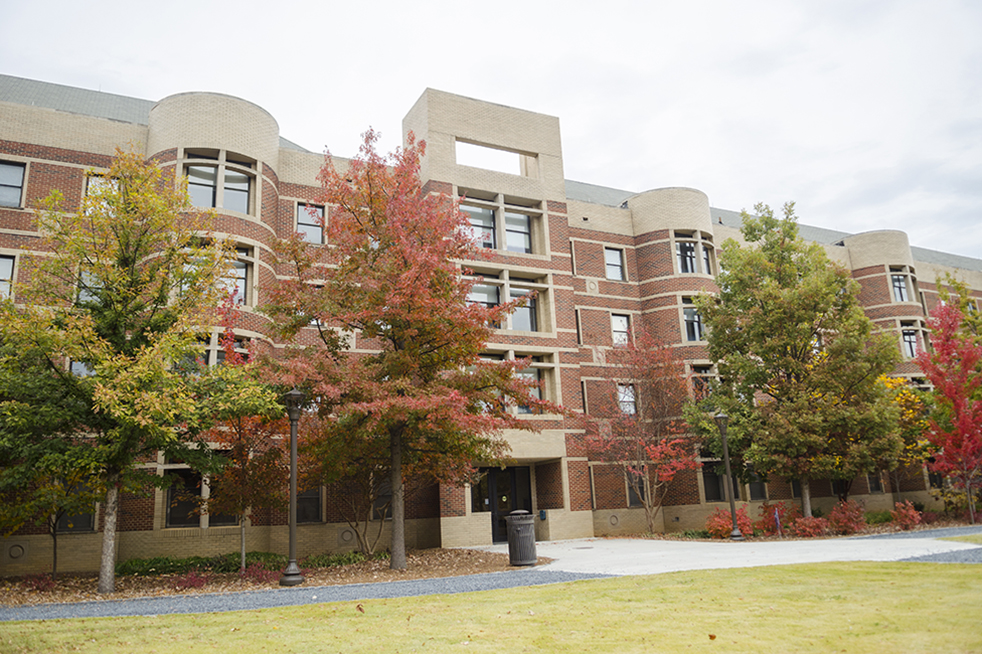The upcoming launch of the housing privatization plan at nine public universities across the state by the University System of Georgia (USG) has caused some concern at Tech.
The Public Private Partnership or P3 plan allows Corvias Campus Living, a private corporation, to develop new housing units and manage old ones at nine USG institutions. Corvias will be in charge of construction, renovation and management of the properties, including charging rent to residents. USG will receive rent from Covias as USG still maintains ownership of the properties. USG will also receive $517 million from Covias.
Tech is not one of the nine institutions included in the first phase of the partnership; however, Tech may be included in future phases.
“Georgia Tech is not in the first phase; however, the P3 initiative is expected to have additional phases which may include other institutions within the University System of Georgia,” said Charles Sutlive, Vice Chancellor for Communications for USG.
While USG has not yet announced if Tech will join the privatization plan, Tech President G.P. “Bud” Peterson says that he is not worried about an ill effect on Tech as a result.
“Privatization of housing is a complex issue and would be helpful to review a specific plan to determine its impact on Georgia Tech and our students,” Peterson said. “I do, however have confidence that the USG will work with us to identify and establish a plan that will be in the best interest of the students, faculty and staff of Georgia Tech, much like we did with the Graduate Student Health Insurance issue a couple of years ago that saved our graduate students hundreds of dollars a year for better coverage.”
Another concern has been the possibility of rent hikes. According to Sutlive, there is a cap in place that prevents rents from going up by more than 3 percent per year.
“The University System will have contractual control over rent increases and will use this oversight to ensure costs stay tightly controlled,” Sutlive said.
One of the most controversial parts of the P3 plan was the Georgia statewide referendum that made the bill possible. Proposition 1, which appeared on Georgia ballots last Tuesday, gives Corvias a tax exemption for operating USG-owned property.
Critics of the measure, including Sen. Mike Crane (R-Newnan), who voted against the referendum in the Georgia Senate, say that the proposition gives an unfair advantage to corporations running USG-owned property over those that run private apartments off-campus.
“I really look at the law and I think it always ought to treat
everyone equally,” Crane said. “So that’s my main concern with it.”
Another common criticism of Proposition 1 is that the wording was confusing and that many voters, including Tech students, were not properly educated on the effect of the measure.
“As student leaders in SGA, we think state legislators and the Board of Regents failed to properly seek student input before adding the recent referendum item regarding student housing to the ballot,” said Dillon Roseen, Undergraduate Student Body President. “While it is the responsibility of voters to do their due diligence and research issues on the ballot before voting, it is also the responsibility of law makers to actively seek feedback from their constituents and any group that may be affected by a new law.”
The ballot measure states simply that it “allows property owned by the University System of Georgia and operated by providers of student housing and other facilities to remain exempt from taxation.” Many voters interpreted this to mean that USG itself wouldn’t pay taxes on its property, not realizing it would give this tax exemption to private companies.
“Oftentimes, the referendums on the ballot, they’re written in such a way that they’ll only pass,” Crane said. “If you look at the vote turnout, people overwhelmingly supported it but they really had no idea what it’s going to do, which is pretty difficult when it comes to referendums on the ballot, to explain some of these complex issues with them.”
Some worry that the privatization is not in the University System’s best long-term interest.
“I just recognize that the private sector is very smart and they’re not going to lose money in the deal and if they’re going to make money then they’re going to protect themselves against the very worst risks that exist out there,” Crane said. “I don’t know how the taxpayers of Georgia and eventually the students who are paying for housing are going be protected in this transaction.”
Others, however, feel that the partnership will allow USG to offer students and taxpayers a better value.
“The Public Private Partnership will help keep the cost of student housing provided by our colleges and universities low and affordable,” Sutlive said. “We also expect our campus housing partner will bring innovative design ideas to improve the overall quality of our campus housing experience.”
